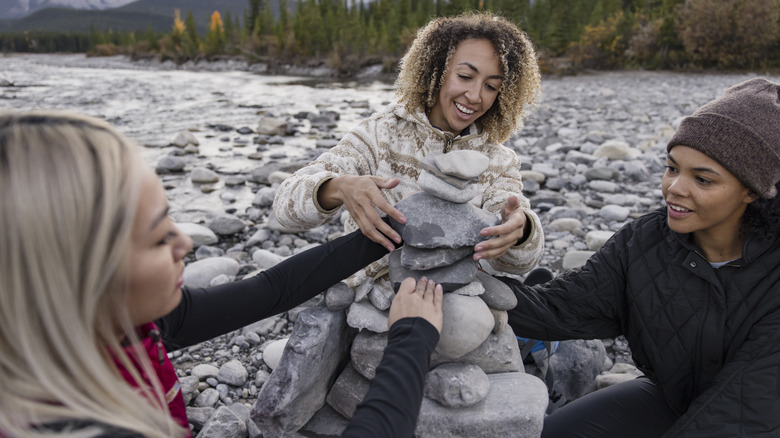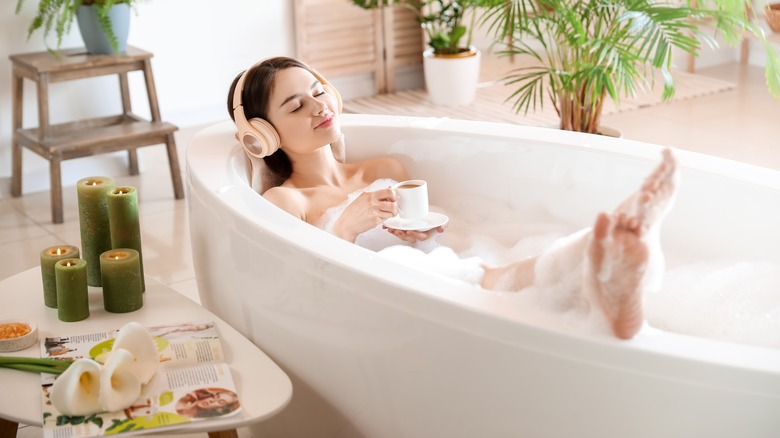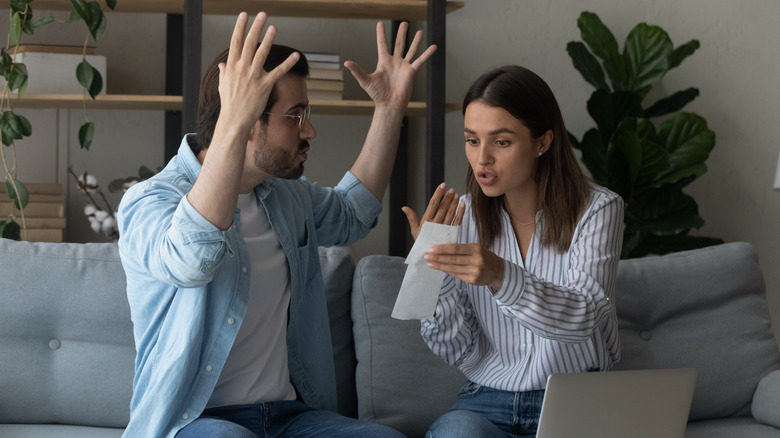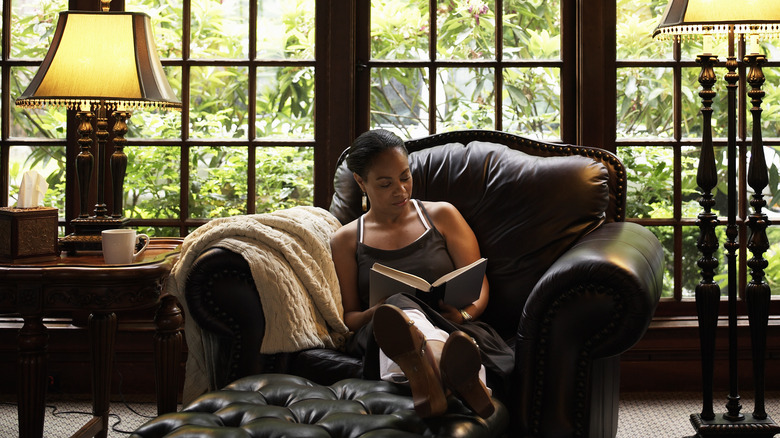How Time By Yourself Can Make Your Relationship Stronger Than Ever
Relationships are hard work, there's no doubt about that. To be in a long-term healthy partnership means you have to put time and effort into it. No matter how alike two people are and how closely their life views and values align, the fact remains that each person comes to the relationship with their own set of childhood trauma, per The Marriage Restoration Project. They each also bring their own weird quirks, annoying habits, and frustrating behaviors to the relationship.
However, through patience and understanding, you both can learn how to be a better partner if you are committed to making it work. Still, every relationship could benefit from couples therapy. Counseling is a wonderful tool to help you understand one another. In therapy, you can learn how to effectively communicate, which translates into not always having to be right while also being truthful (via The Gottman Institute). It also helps you work against your own dysfunctional patterns and become vulnerable, which leads to greater intimacy.
Oddly enough, another surprising tool that improves a relationship is setting aside time for yourself.
You need your own downtime — and so does your partner
Though it may sound counterintuitive, everyone needs to have solid downtime to themselves in order to restore. Even in the most harmonious of relationships, it's a necessary component.
No matter how much you love your partner, it's healthy to find time to be alone or to get out and have fun with your friends. When you are with someone, it's normal to put the focus and attention on them. You might compromise on what you want to eat or watch or where to go because you want to be a good partner. Yet sometimes, you just want to do what you want to do without having to consider anyone else. It's not anything personal against your partner. It's just simply a means to retain your own individuality (via Eugene Therapy).
Being alone can also foster independence. "A day of total freedom is both an opportunity to connect with your individual self, and helps foster feelings of empowerment, which is a powerful antidote to the helplessness that a lot of us have felt during the pandemic," clinical psychologist Jodie Eisner told The New York Times. "It expands your recently narrowed comfort zone by reminding you that you're capable and independent."
Benefits of time alone
Relationship experts often advise people who are seeking out a partner to focus on themselves and do what brings them joy. That still holds true when you are in a relationship, too. Part of being in a healthy and fulfilling partnership is retaining the ability to take care of yourself at the same level you would if you were single. Giving in to what your partner wants all the time or not letting your partner know your own wants and needs is a relationship killer (via Mind Body Green).
However, if your partner has had issues with fidelity and trust, wanting alone time may not only be a trigger but also a warning sign, according to Brides. Yet, if you trust your partner and they want some time to devote to a hobby, see their friends, or simply spend time alone, it can recharge them and make them a more present and engaged partner. Consider how good it feels to spend the afternoon reading, taking a bath, or binging your favorite series. Spending time with yourself can be incredibly invigorating.
Hazards of spending too much time together
On the flip side, spending too much time with your partner can begin to feel suffocating. Even in healthy relationships, everyone needs their own space and downtime. You know you need some time away when your partner's daily habits start to grate your nerves and you find yourself quibbling over the same petty things on a regular basis, Marriage.com noted.
You should remain autonomous even when coupled because you are a full person all on your own. If you find yourself always asking your partner before you do anything, that could be a problem. It may signal that "you're codependent and can't do anything without letting your partner know or getting your partner's approval," according to relationship expert April Masini (per Bustle). This can translate into checking in with your partner all day long.
"Chances are you're texting, calling, and emailing a dozen times a day. Don't. Wait until you see each other in person at the end of the day," Masini explains. "Sometimes the 8-hour workday apart is enough. Other times you need more."
Having the conversation
Speaking to your partner about waiting more time alone doesn't have to be a problem. In fact, it should be a sign that you have healthy communication and good boundaries because you are choosing to be open, express yourself in a healthy manner, and communicate your needs. It's a sign of trust and love, for yourself and your partner.
"Share this with your partner, [ensuring it's] not about spending less time with them but rather spending more time with yourself [and] how you've come to realize why this is important for you at this time," licensed psychotherapist and sex therapist Michael Moran told Mind Body Green. "The more they truly love each other, the more they'll encourage their partner to grow and evolve in their own unique way."
It's also important to realize that your partner may not need as much alone time as you do — particularly if they are an extrovert, who is invigorated from the company of others and you are an introvert, who gets filled up with solitude (via Healthline). Instead of saying you need space, be very specific in what you would like to do alone and how it will bring you joy and peacefulness or recharge you.
Ways to carve out your own space
Psychologist Cicely Horsham-Brathwaite explained to Self that "[f]ulfilled, happy, and whole people make good partners." Yet having some space means something different to each person. Some people want to stay home and just do their own thing, like take a long luxurious bath or even a nap. Some people are content to stay in the same room with their partner but simply zone out by putting on headphones and reading. Yet others may want to go hiking or play tennis or see a movie with friends. It's important to identify what will make you feel restored and recharged.
Sometimes it may be a daily fix like having separate workspaces, getting up earlier to enjoy your morning coffee alone, or exercising by yourself (per Your Tango). Other times it may be signing up for a class that meets once a week or planning a solo outing on a weekly basis.
It all really depends on what you desire that will leave you in a recharged state where you are ready to be fully engaged with your partner upon your return.





